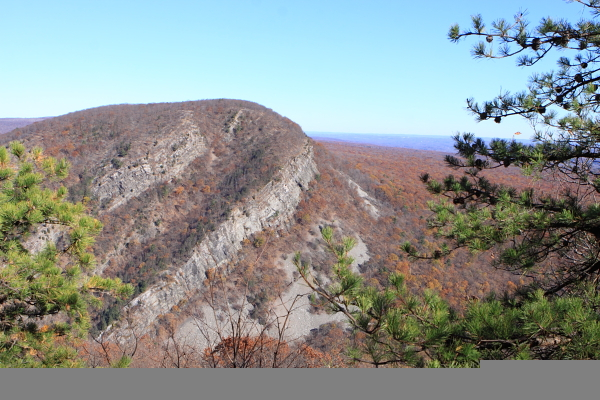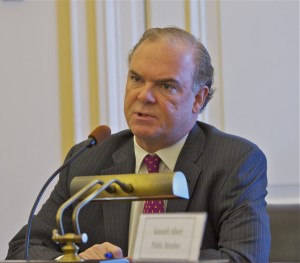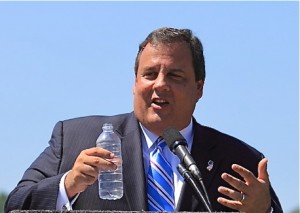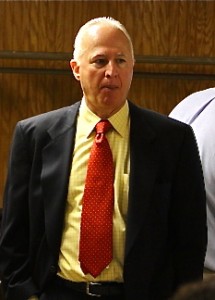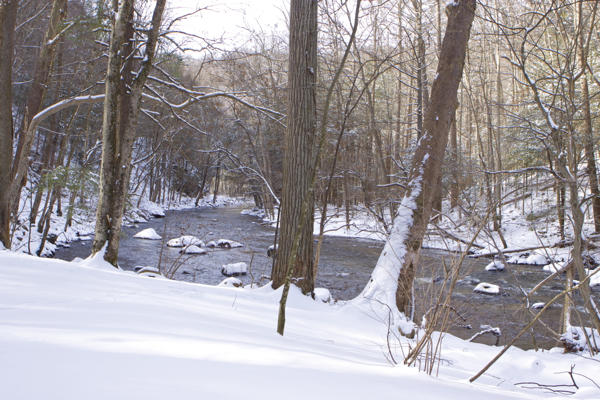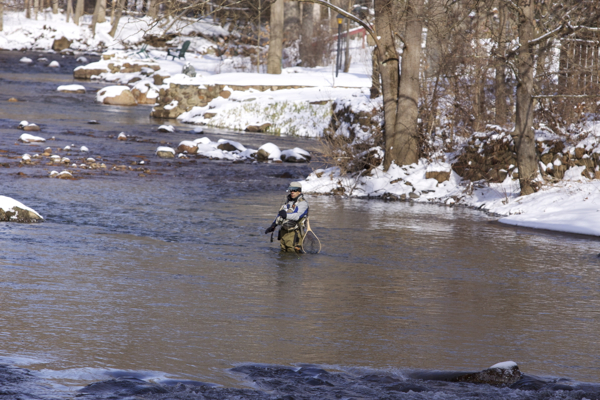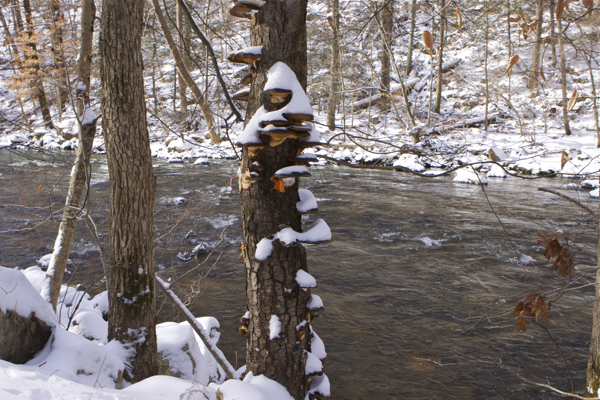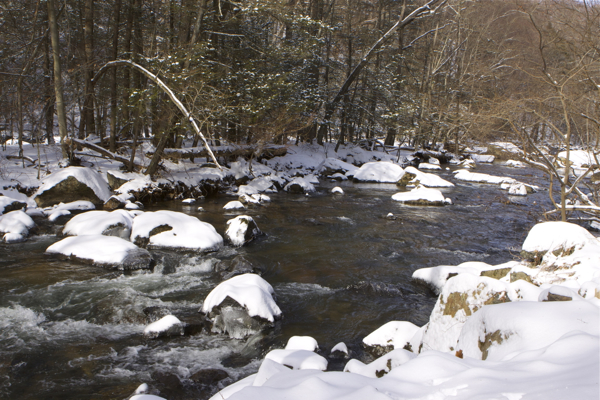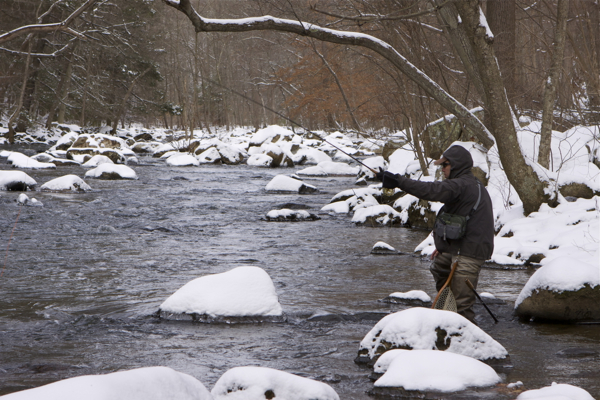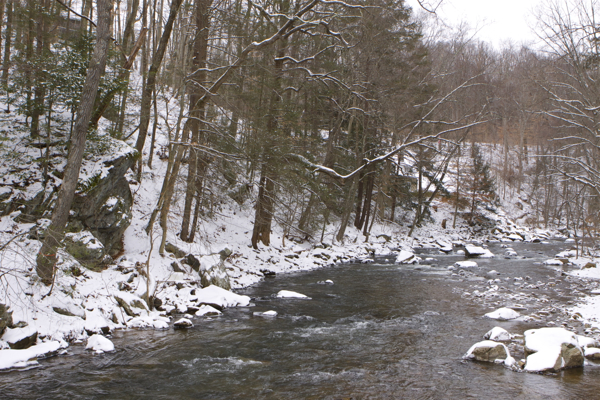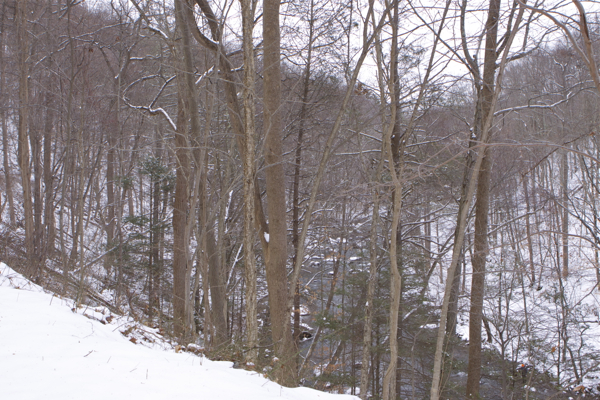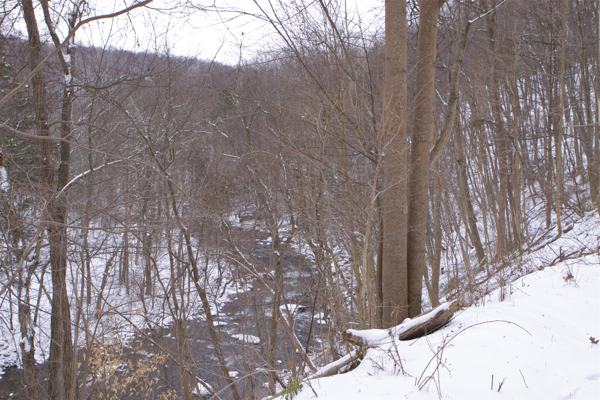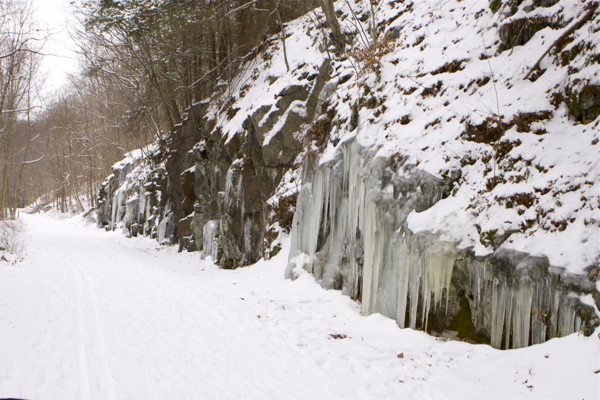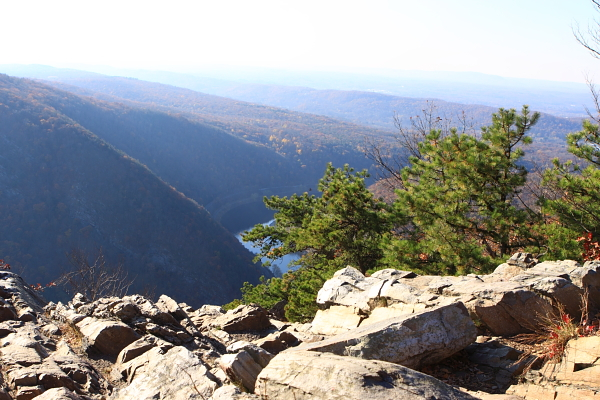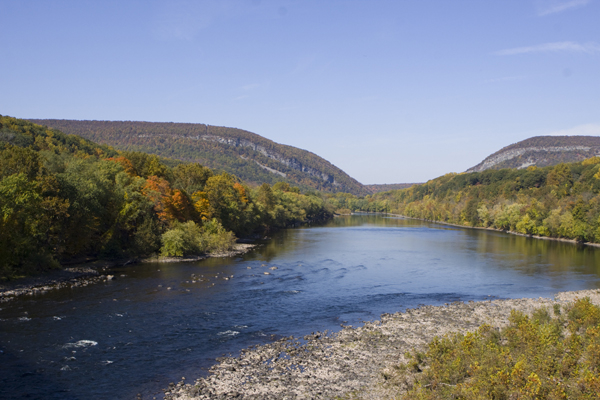Forest “Harvest” and State Land Value Bills Heard Today
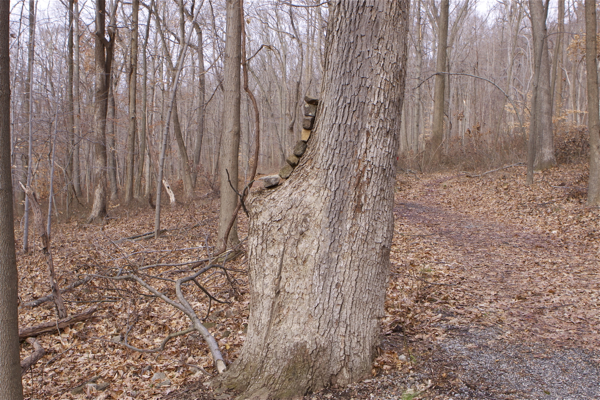
Cairn Tree - Cushetunk Mountain - Round Valley
[Update 1/31/12 – Tom Johnson NJ Spotlight writes the story:Â Trying to Set a Fair Price for Private Use of Public Lands – Conservationists dismiss DEP’s flat fee as far too low
Environmentalists questioned whether the state would still be undervaluing land if the proposed 15 cents per square foot is adopted by the administration.
Bill Wolfe, executive director of Public Employees for Environmental Responsibility, suggested a much higher benchmark of $1.25 per square foot for leasing of open lands. He noted that two utilities trying to expand a high-voltage power line through the Delaware Water National Recreation Area recently offered to spend $30 million to buy up open space around that project. Under his calculations, Wolfe said that comes out to about $13 per square foot. end]
The Senate Environment Committee heard 2 important bills today regarding state lands.
Commercial Logging on State Lands – Forest Stewardship (S1085)
Committee Chairman Bob Smith, sponsor of the hugely controversial commercial logging bill that failed in last session’s lame duck, reintroduced that bill (S1085).
To restart the legislative process this session, today he posed a narrow question to focus testimony:
Smith asked each person testifying to stick to the question: “What is the state of the state’s forests”.
Seeming like he was pissed off by the blindsided criticism he received on his lame duck bill, Smith asked the various conservation groups to get together and provide a unified position in support of the bill, or provide an alternative solution. Revealing his frustration, Smith said:
I’m not meeting with you – meet amongst yourselves.
Smith will move a bill on March 8 – he asked for public comments by March 1.
So, now is the time to provide input:
Contact info: Â SenBSmith@NJLeg.org. Be sure to copy Committee aid Kevil Duhon at KDuhon@NJLeg.org
You can listen to the testimony by clicking on this link. (scroll down to Environment Cmte).
I testified that the state of the forests were an integral part of the quality of life of the people of the state. Forests are public resources that provide competing benefits for public use and enjoyment and any attempt to manage them raises conflicting ecological objectives.
Given these competing uses and conflicts, public control is essential.
Legislation must assure that “perverse incentives” are eliminated from driving the forest management program. Those perverse incentives include revenues for commercial foresters and fees for DEP managers, which will lead to economic considerations being elevated above the public interest and forest ecology.
Forests are in decline, threatened, and vulnerable to threats posed by global warming, over-development, fragmentation, the narrow views of scientists and “experts”, and misguided government officials and corporations who views forests as commodities.
Public preferences, including aesthetic enjoyment, must be given equal consideration with science in any forest management initiative.
Economic Value of State lands  – S826
This bill grew out of the debacle over the Tennessee Gas Pipeline lease.
I wrote about this set of issues numerous times:
- DEP Report: Highway Right-of-Way Land 8 Times More Valuable Than State Parks and Forests
- Fair Market Value Leases for Energy Infrastructure Could Fund Parks System
- Christie Cuts Sweetheart Deal with Gas Industry
- NJ Subsidizing Oil and Gas Pipelines That Cross State Lands
- NEW JERSEY PARKS LOSE MILLIONS IN UNCOLLECTED LEASE PAYMENTS — Park Closures Could Be Averted by Reaping Concessionaire and Easement Revenue
According to the bill summary:
- This bill would provide that, when determining the value of
- lands based upon their intended use upon conveyance, the revenue
- generation potential of the land, i.e., how much revenue would be
- generated from the land if the sale, exchange, lease, easement,
- right-of-way, or other similar property interest is granted, would be
- required to be taken into consideration and calculated as part of the
- value of the land, and this amount would be the minimum value that
- may be accepted by the State in exchange for the conveyance of the
- lands, with one exception.
The bill is a very good idea to force corporations to pay the taxpayers the full economic value of leasing the public lands.
The bill needs to be amended as follows:
- The bill only applies to new conveyances of lands. The bill must be expanded – as recommended by 3 OLS AUdits – to require that current leases be renegotiated to reflect fair market value
- The bill should set a minimum floor prices far in excess of the DEP’s uniform ceiling price of 15 cents per square foot, which is far too low. The range of market values runs from $1.25.square foot set by the NJ Turnpike Authority for fiber optic cables in the Turnpike ROW to $13 per square foot recently offered as mitigation by PSEG for the powerline through the Delaware Water Gap (S-R line calls for a 50-200 ft ROW expansion, assume 100 ft average width, over 4.3 linear miles)
$ 30 million/(4.3 linear miles) x (5280 ft./mile) x (100 feet ROW) = $13.21/sq. ft
- prohibit Utilities from passing though costs and recovery by ratepayers

